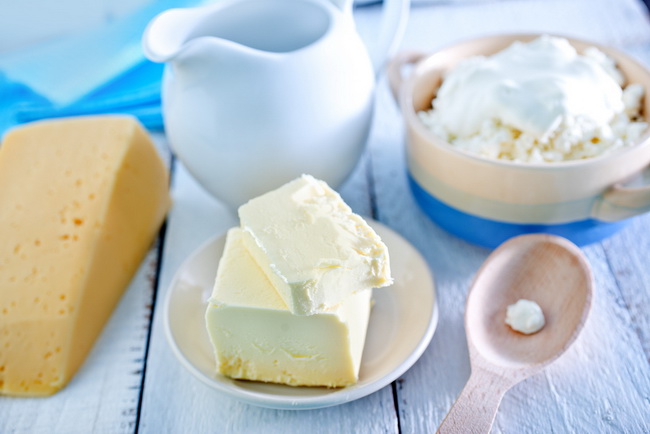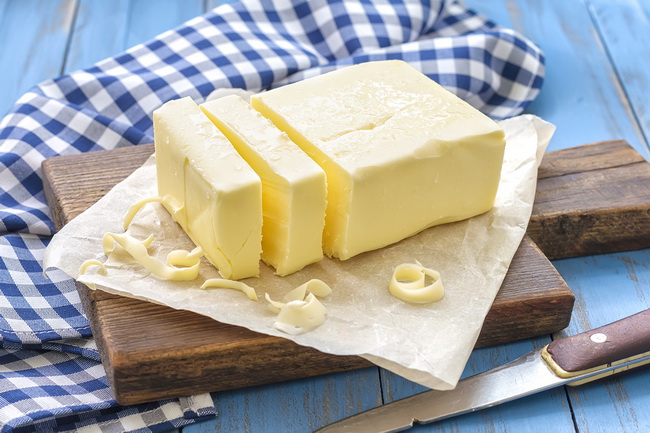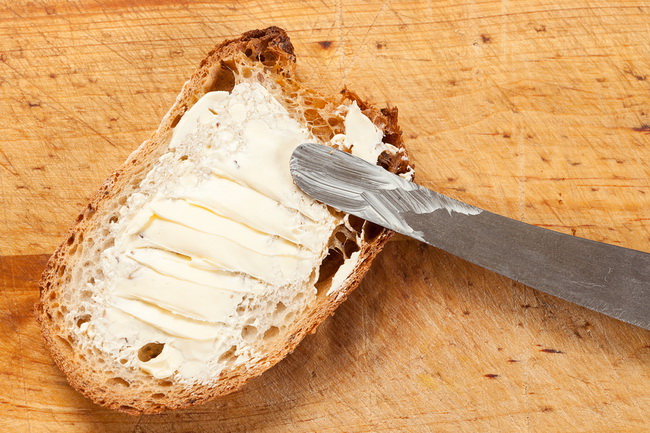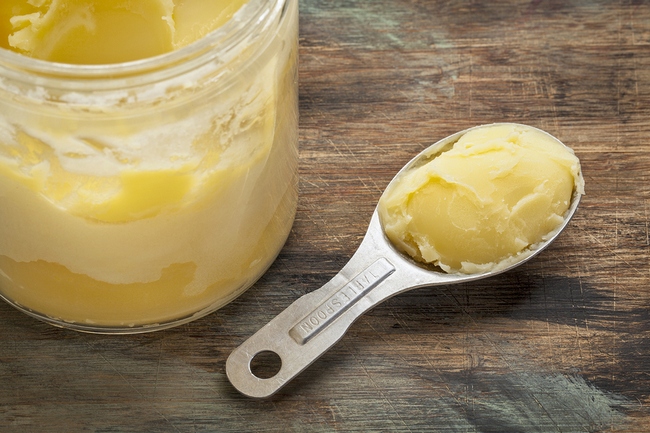- Make It Yourself Lavender Heart-Shaped Bath Bombs!
- 20 Things You Never Knew About “Down There”
- 12 Best Foods For Those Suffering From Arthritis Pain
- 12 Personal Hygiene Mistakes Almost Everyone Makes (Mom Never Told You About #4!)
- 15 Medicinal Plants And Herbs From The Cherokee People
- 12 Mind-Blowing Benefits Of Drinking Coconut Water During Pregnancy
- 12 Outstanding Winter Foods That Won’t Fatten You Up Like A Christmas Turkey
25 Super Health Benefits of Delicious, Natural, Creamy …What?!

Photo credit: bigstock.com
You’re super health conscious, so you avoid butter because it causes heart disease, right?
Time to bone up on your reading and learn the facts about butter.
Natural, creamy butter goes back probably thousands of years to when our ancestors first began domesticating animals for food. The first written reference to butter was found on a limestone tablet that was at least 4,500 years old describing how butter was made. In India, a form of butter called ghee has served as a symbol of purity, and was offered to the gods in ceremonies for at least the past 3,000 years. Even the bible has references to butter, as Abraham put butter and milk before three angels who appeared to him.
When did butter get its bad rap?
In the early 1900’s, heart disease was something rare. However, just 60 years later, heart disease became the number one killer in America. During this same time period, the consumption of butter decreased from about 18 pounds per person each year to about 4 pounds per person. However, a researcher by the name of Ancel Keys stated that saturated fats and cholesterol in foods caused heart disease.
Even though numerous studies over the past 20 years have proven otherwise, butter is still getting a bad rap and being blamed for causing heart disease, even though Americans have drastically reduced their intake of natural animal fats and exchanged them for processed foods, heart disease continues to be the number one killer.
If you mistakenly believe that chemically filled, trans-fat, processed margarine is better for you than all natural butter, think again! Margarine, and other hydrogenated oils are more detrimental to your health than natural butter could ever be.
Keep reading and find out the top 25 reasons why you can ditch that tub of margarine and return to natural, pure, delicious, wholesome butter.
Continue to Page 2

Photo credit: bigstock.com
1. The cholesterol in butter fat is essential to a child’s developing brain and nervous system.
2. Prevents gastrointestinal infections for the very old or the very young.
3. Rich source of selenium.
4. The compound in butter that makes it soft also keeps the arteries soft as well as prevents the calcification of the penal gland.
5. Butter contains vitamin D, a vitamin that most of us don’t get enough of and is essential to the absorption of calcium.
6. Butter has arachidonic acid, which plays a vital role in brain function as well being a key component of cell membranes.
7. Butter contains saturated fats that have powerful anti-cancer and anti-tumor compounds.
8. Butter can protect you from tooth decay.
9. This is a major source of a compound called activator X, which helps your body to absorb minerals from the foods you eat.
10. Butter contains an easily absorbable form of iodine, a nutrient essential to thyroid function.
Continue to Page 3

Photo credit: bigstock.com
11. Butter is not stored in our adipose tissue like margarine is, but it is used for a quick source of energy.
12. Sweet, natural butter contains conjugated linoleic acid, which builds muscles, improves the immune system, and is known to be a powerful anti-cancer agent.
13. Protects your body from calcification of the joints.
14. Encourages fertility in women.
15. A natural way to get vitamins E and K2, which is crucial for the metabolism of calcium.
16. Butter contains lauric acid, which is important for fighting fungal infections like Candida.
17. Has antioxidants which protect the body from free radical damage, which causes premature aging.
18. Butter contains lecithin, which is essential for the metabolism of cholesterol in the body.
19. Natural butter is rich in the most easily absorbable form of vitamin A, which is necessary for healthy vision, adrenal, and thyroid health.
20. Butter has powerful antioxidants that protect us from weakening of the arteries.
Continue to Page 4

Photo credit: bigstock.com
21. Great source of the fatty acid butyrate, which gives us energy, lowers fasting triglycerides and insulin levels.
22. Consumption of butter has been shown to be associated with lower levels of obesity, metabolic disorders, and heart disease.
23. The high levels of vitamins A, D, and K2 in butter can prevent osteoporosis.
24. The many factors listed above ensure the optimal growth of children, especially the iodine and vitamins A, D, and K2.
25. Butter can help prevent arthritis.
SEE ALSO: The Many Benefits of Raw Shea Butter and 20 Ways to Use It!
You should always consume butter that comes from organic, grass-fed cows only, or you can always make your own. Cultured butter is full of healthy bacteria such as lactobacillus planterum and lactococcus lactis. These microflora are absolutely essential for a healthy digestive system.
How much butter should you eat every day? Like salt, you should let your body tell you how much is right for you. If you crave it, then your body needs it.
After reading this it’s obvious that butter is what does a body good.
References:

































